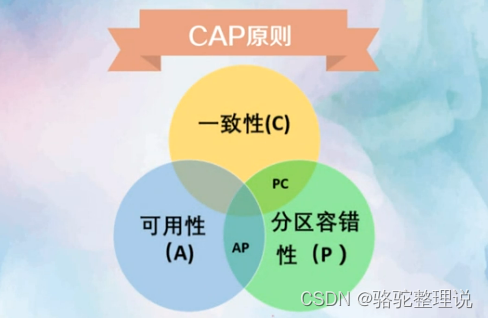目录
CAP理论
CAP是指在分布式系统中Consistency(一致性)、Availability(可用性)、Partition Tolerance(分区容错性),三者不能同时成立。在1998年由加州大学的计算机科学家Eric Brewer提出。

Consistency : Every read receives the most recent write or an error
Availability : Every request receives a (non-error) response – without the guarantee that it contains the most recent write
Partition tolerance : The system continues to operate despite an arbitrary number of messages being dropped (or delayed) by the network between nodes
一致性:客户端的每次读操作,要么读到最新的数据,要么读失败,强调的是数据的准确性。








 CAP理论指出在分布式系统中,一致性、可用性和分区容错性不能兼得。BASE理论则是在CAP基础上,主张基本可用、软状态和最终一致性。在分布式环境中,系统通常会在一致性和可用性之间做权衡,以实现最终的数据一致性。
CAP理论指出在分布式系统中,一致性、可用性和分区容错性不能兼得。BASE理论则是在CAP基础上,主张基本可用、软状态和最终一致性。在分布式环境中,系统通常会在一致性和可用性之间做权衡,以实现最终的数据一致性。

 订阅专栏 解锁全文
订阅专栏 解锁全文


















 3384
3384

 被折叠的 条评论
为什么被折叠?
被折叠的 条评论
为什么被折叠?










